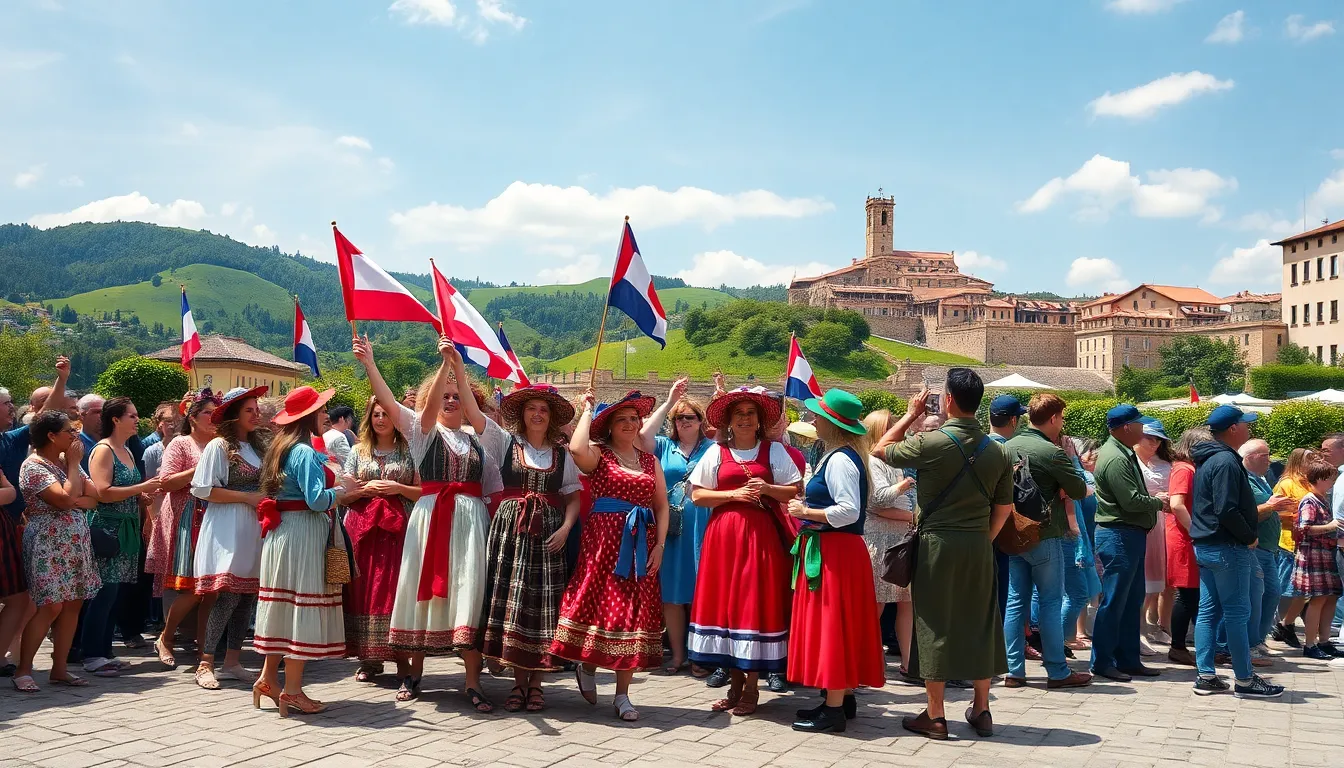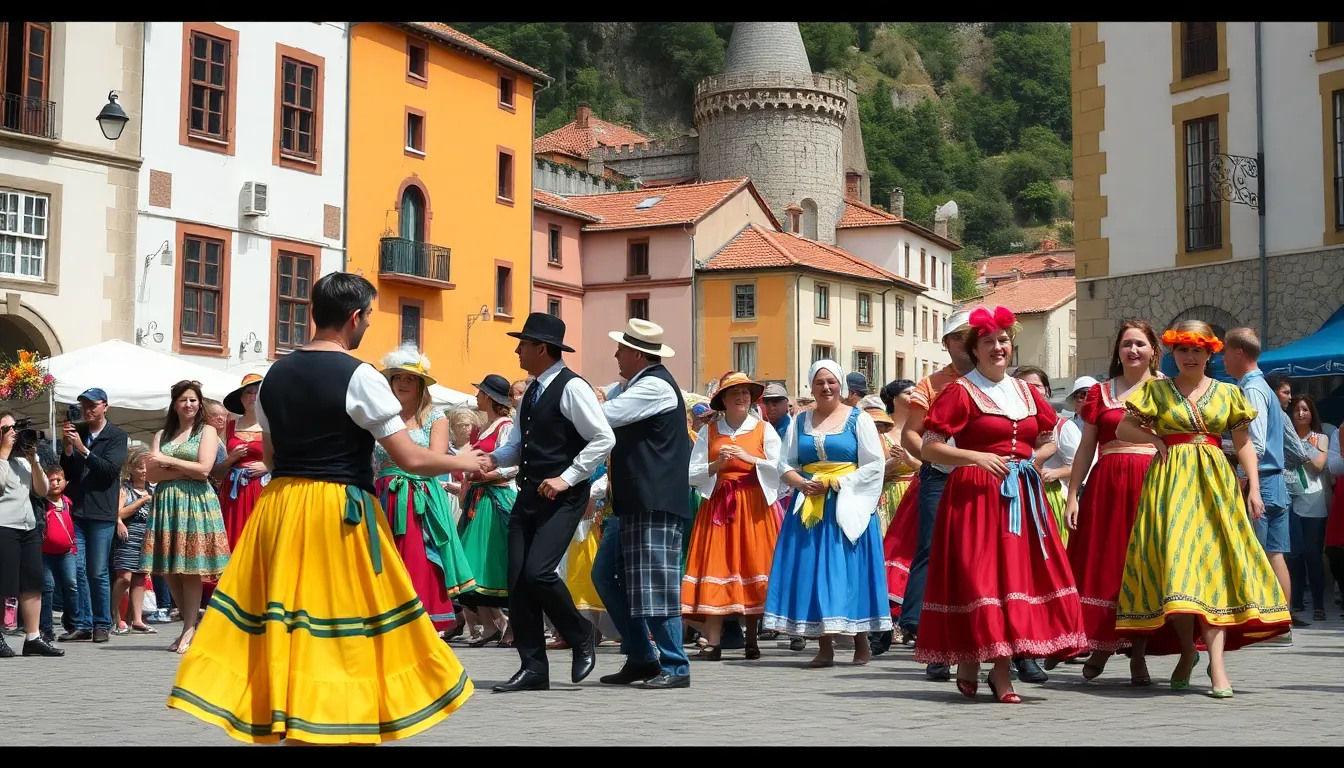Table of Contents
ToggleIn the vibrant tapestry of modern politics, few groups spark as much intrigue as the basqueserpartists. These passionate advocates blend tradition with innovation, fighting for the unique identity of the Basque Country while navigating the complexities of contemporary governance. If you think politics is all suits and serious faces, think again—these folks bring a dash of flair and a whole lot of heart to the table.
Imagine a world where local culture thrives, and language dances on the tongues of its people. The basqueserpartists are on a mission to make that a reality. With their quirky charm and unwavering dedication, they’re not just reshaping policies—they’re redefining what it means to belong. So buckle up and get ready to dive into the colorful world of basqueserpartists, where every debate is a celebration and every vote counts.
Overview of Basqueserpartists
Basqueserpartists represent a vibrant movement rooted in the Basque Country’s cultural and political landscape. Their mission centers on preserving the Basque language and traditions while promoting local governance and community involvement. They integrate modern political strategies with traditional values to create a unique approach.
Advocacy for self-determination forms a core principle for basqueserpartists. Many members emphasize the importance of local identity and autonomy, fostering a strong sense of belonging. By participating in discussions and initiatives, they seek to ensure that Basque voices are heard in regional and national dialogues.
Political engagement among basqueserpartists often connects to cultural events, transforming debates into celebrations. Events highlight local cuisine, music, and art, showcasing the region’s rich heritage. Engagement with younger generations plays a critical role, ensuring the continuation of these traditions and values.
Environmental sustainability ranks as another important focus for basqueserpartists. Sustainable practices in agriculture and industry are advocated to protect the region’s natural resources. Initiatives encourage responsible use of local materials and promote eco-friendly practices, linking ecology to community welfare.
Networking with like-minded organizations enhances their efforts. Collaborations with cultural associations strengthen the movement and extend its reach. Such partnerships amplify their impact and create a network of support dedicated to the Basque identity.
Historical Background

The basqueserpartists trace their roots to a rich cultural and political heritage that reflects the unique identity of the Basque Country. This movement emerged in the late 20th century, growing from local efforts to promote the Basque language and customs amid broader global influences.
Origins and Development
Origins of the basqueserpartists date back to the early 1980s, coinciding with Spain’s transition to democracy. Initially, grassroots efforts focused on cultural preservation and regional autonomy. Development accelerated with increased political engagement, resulting in significant representation within local and regional governments. Action for self-determination emerged as a driving force, with initiatives blending advocacy for the Basque language and cultural festivals into political discourse. This combination established a vibrant platform for community involvement.
Key Figures in the Movement
Several key figures have shaped the trajectory of the basqueserpartists. Early leaders included cultural activists who emphasized local traditions. Politicians advocating for autonomy contributed significantly to formalizing the movement’s goals. Current representatives, such as those in the Basque Parliament, continue to drive efforts in environmental sustainability and cultural promotion. Collaboration with other organizations enhances their impact, allowing shared resources and knowledge. Each leader brings a unique perspective while fostering unity within the community.
Cultural Significance
Basqueserpartists play a vital role in preserving and promoting the unique cultural identity of the Basque Country. Their efforts extend across various aspects of local life, impacting traditions and the arts significantly.
Impact on Local Traditions
Preserving local traditions is a cornerstone of the basqueserpartist movement. Community festivals highlight ancestral customs, fostering a sense of belonging among residents. Participation in age-old practices strengthens connections to Basque heritage. Additionally, they emphasize the importance of the Basque language through educational programs and public events. Engaging younger generations ensures these traditions remain relevant and alive. Such initiatives create an environment where cultural identity flourishes, reinforcing community bonds and local pride.
Influence on Art and Music
Art and music flourish under the influence of basqueserpartists. They actively support artists who draw inspiration from Basque folklore and contemporary themes. Festivals often feature performances that blend traditional music with modern styles, showcasing the region’s creative diversity. Collaborations between musicians, visual artists, and cultural organizations enable a vibrant exchange of ideas. These interactions cultivate an artistic landscape rich in heritage and innovation. By prioritizing local talent, they nurture a thriving cultural scene that resonates with both residents and visitors.
Current Landscape
The current landscape of basqueserpartists reflects their dynamic engagement with the Basque Country’s identity and governance. Passionate advocates drive initiatives that celebrate and preserve local culture.
Major Organizations and Events
Key organizations play a crucial role in the basqueserpartist movement. The Eusko Alkartasuna party and the Basque Nationalist Party lead efforts in political representation and cultural preservation. Annual events, such as the Euskal Herriko Jaiak festival, provide platforms to showcase Basque traditions and foster community spirit. These gatherings contribute to cultural continuity while enhancing local visibility and promoting regional pride.
Challenges Faced by Basqueserpartists
Basqueserpartists encounter various challenges in their advocacy. Political fragmentation often hinders a unified approach to governance. Additionally, external pressures from national governments complicate efforts for self-determination. Economic constraints impact funding for cultural programs, limiting outreach and educational initiatives. Ultimately, navigating these obstacles requires resilience and strategic collaboration among supporters and allies.
Future Prospects
Basqueserpartists are poised to shape the future of the Basque Country significantly. Advocacy for cultural preservation forms a crucial part of their agenda. Collaboration with organizations enhances their impact, providing a broader platform for cultural expressions. Initiatives promoting language education can secure the relevance of the Basque language for young generations.
Local governance remains a priority, as it fosters community engagement in political processes. Continued emphasis on environmental sustainability will resonate with growing global concerns. Cultural events such as Euskal Herriko Jaiak showcase the community’s traditions and strengthen local identity. Strategic partnerships with other cultural and political groups can amplify their initiatives.
Increasing challenges arise, including political fragmentation and external pressures from national governments. Economic constraints often limit funding for cultural programs, impacting the vibrancy of the movement. Resilience and adaptability among basqueserpartists are essential for overcoming these obstacles. Moreover, proactive engagement with younger demographics can rejuvenate the movement and encourage new leadership.
Participation in regional politics continues to evolve. Current representation in local and regional governments shapes policies aligned with Basque interests. Blending tradition with modernity presents unique opportunities for innovation within cultural practices.
Future initiatives may prioritize technology in promoting cultural activities, making them more accessible. Ensuring that the Basque heritage remains dynamic and relevant will attract diverse audiences. The commitment of basqueserpartists to their identity suggests a bright future for the cultural landscape of the Basque Country.
The journey of basqueserpartists reflects a vibrant commitment to preserving the Basque identity while embracing modernity. Their unique approach to politics transforms community engagement into a celebration of culture and heritage. By prioritizing local governance and environmental sustainability, they not only advocate for self-determination but also nurture a sense of belonging among residents.
As they navigate challenges like political fragmentation and economic constraints, the resilience of basqueserpartists shines through. Their focus on education and collaboration ensures that the Basque language and traditions remain relevant for future generations. With a dynamic blend of tradition and innovation, basqueserpartists are set to continue shaping the cultural landscape of the Basque Country, fostering unity and pride within the community.




